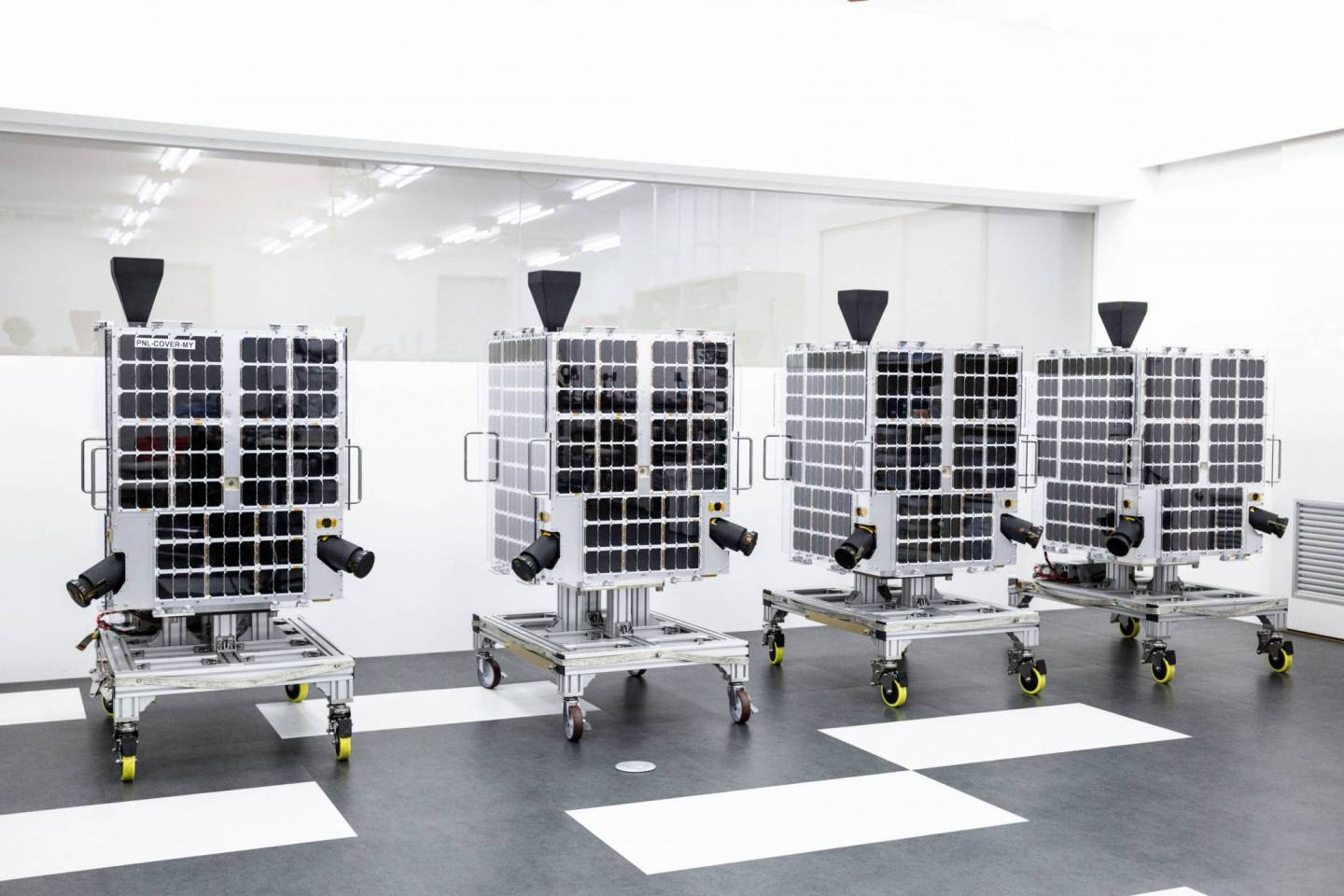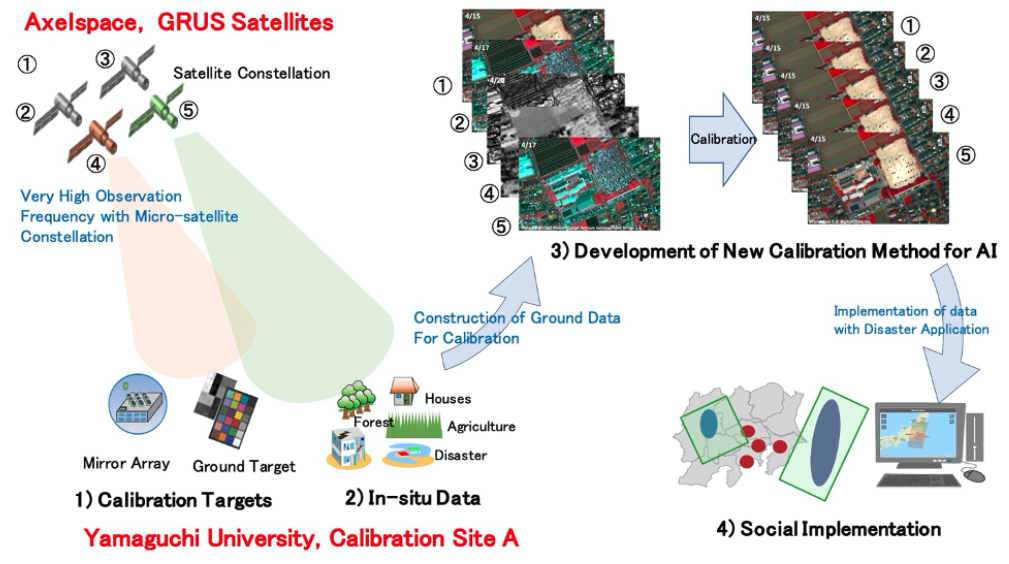TOKYO, December 4, 2020 – Axelspace Corporation and Yamaguchi University have started space utilization technology innovation program of MEXT whose research title is “Development of Calibration method for Satellite Data Analysis with AI technology in Satellite Constellation Era”. Taking this opportunity, we cooperate and strive for developing the innovative space utilization technology.
Axelspace that is good for microsatellite development and Yamaguchi University that is good for satellite data analysis make an agreement in research collaboration and human resource development. We also fortify collaboration for regional revitalization in Yamaguchi Prefecture.

Figure 1: Four satellites (GRUS-1B, 1C, 1D, 1E)
Development of Calibration method for Satellite Data Analysis with AI technology in Satellite Constellation Era
Recently, there is growing interest in satellite data utilization and the number of actual business cases has been increasing. One of the most remarkable demand for the satellite data utilization is observation frequency. For example, it is necessary to monitor agricultural crops every 2-3 days, however it is impossible to realize by just one satellite. Therefore, satellite constellation plays an important role. Microsatellite technology has dramatically increased, and it is possible to produce at low cost. In the near future, we expect these satellite constellations will be used for social infrastructure and huge amount of satellite data will be commonly used.
Axelspace is constructing AxelGlobe, the next-generation Earth observation platform, where we can monitor the world on a daily basis. AxelGlobe consists of constellation of GRUS, a 100kg-class microsatellite for optical Earth observation. The company was successful at launching the first GRUS on December 27, 2018, and began data distribution in May 2019. The following launch is slated for March 20, 2021, where 4 additional satellites will be put in the orbit. This 5-satellite constellation will enable us to capture anywhere in the world with the monitoring frequency of at least every 3 days (The frequency of every 1.4 days on average is achievable in mid-latitude regions including Japan). Axelspace aims to complete the constellation by further increasing the number of satellites in orbit by 2023 to achieve the daily monitoring capability of the world.
Yamaguchi University aims to solve various social issues such as disaster and environmental problem with huge amount of satellite data provided from satellite constellation, led by Prof. Masahiko Nagai who is director of Center for Research and Application for Satellite Remote Sensing and the leading expert in a field of satellite remote sensing.
According to the Basic Agreement, both Axelspace and Yamaguchi University will promote the collaboration in (1) Research and development, (2) Human resource development, (3) Industry-university collaboration, and (4) Various possible activities. Yamaguchi University that is specialty of satellite remote sensing and Axelspace that is specialty of satellite development strive together and play a role in solution of social issues with development of space technology in Japan and the world.
